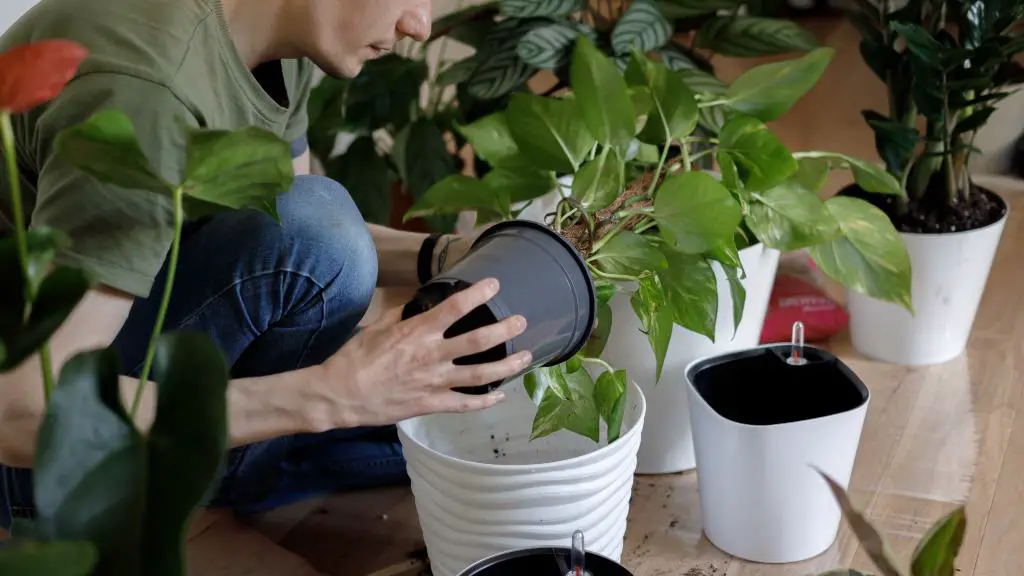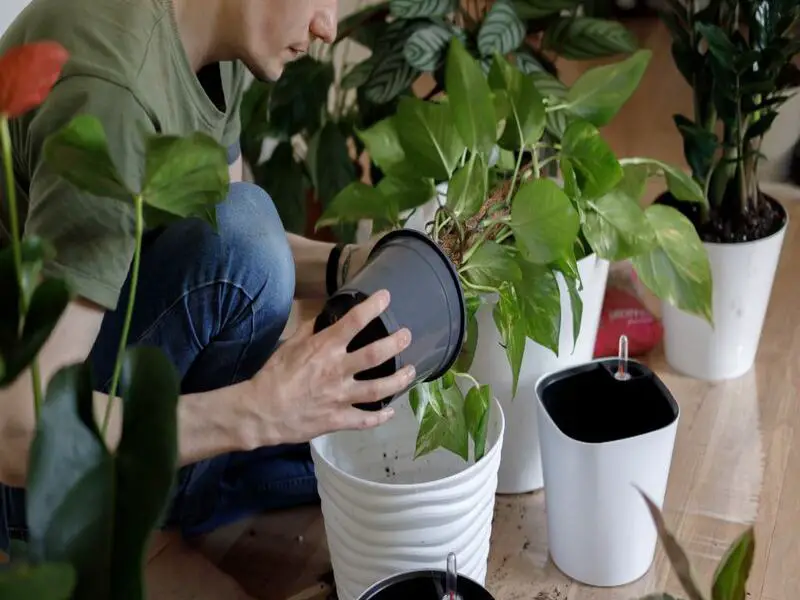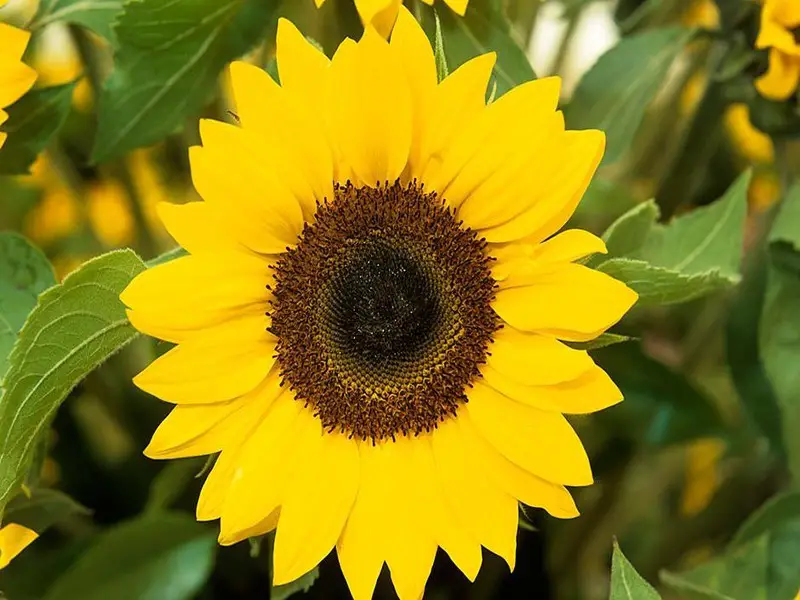Gardening is a popular hobby that many people enjoy. It is not only relaxing and therapeutic but also beneficial to the environment. However, there are many myths and truths about gardening that people should know before starting. In this article, we will discuss seven common myths and truths about gardening.
Myth: Gardening is only for those with a green thumb
Gardening is often seen as a hobby that requires a green thumb, a natural talent for growing plants. This belief can be discouraging for those who are new to gardening or feel like they don’t have a “green thumb.” However, the truth is that gardening is a skill that can be learned and honed through practice and patience.
While some people may have a natural inclination towards gardening, anyone can become a successful gardener with the right knowledge and tools. Learning the basics of gardening, such as how to prepare soil, plant seeds, and care for plants, is essential. There are many resources available, such as books, online articles, and gardening classes, that can help beginners learn these skills.
In addition to learning the basics, it’s important to understand that gardening is a continuous learning process. Even experienced gardeners face challenges and make mistakes. It’s important to be patient and not give up if a plant doesn’t thrive or a garden bed doesn’t look perfect. Every gardening season is an opportunity to learn and improve.
It’s also important to remember that gardening is not just about having a green thumb. It’s about connecting with nature, enjoying the process of growing plants, and reaping the benefits of fresh produce, beautiful flowers, and a peaceful outdoor space. Gardening can be a therapeutic and enjoyable hobby for anyone, regardless of their natural talents or experience level.
Truth: Anyone can be a gardener
The truth is that anyone can be a gardener, regardless of their experience or knowledge. Gardening is a skill that can be learned, and with the right guidance and resources, anyone can start a garden and grow their own plants.
One of the best resources for beginner gardeners is the internet. There are countless gardening websites, blogs, and forums that offer helpful tips and advice for getting started. These resources can provide information on everything from choosing the right soil and tools to selecting the best plants for a specific location.
In addition to online resources, gardening books can also be a great source of information for beginners. There are many books available that cover a wide range of gardening topics, from the basics of planting and caring for plants to more advanced techniques such as composting and container gardening. These books can provide a solid foundation of knowledge for anyone who wants to start a garden.
Community gardens can also be a valuable resource for beginner gardeners. These gardens are often run by local organizations or municipalities and offer plots of land for individuals to grow their own plants. In addition to providing a space to garden, community gardens can also offer support and guidance from more experienced gardeners.
Myth: Gardening is expensive
Many people believe that gardening is an expensive hobby, but this is actually a common myth. Gardening can be a cost-effective activity if done correctly. Beginners don’t need to buy expensive tools and equipment, and can start with just the basics and gradually invest in more advanced tools as they become more experienced.
Another way to save money on gardening is to grow plants from seeds instead of buying mature plants. Seeds are more affordable than mature plants and can provide a wider variety of plants to choose from. Growing plants from seeds can also be a rewarding experience, as gardeners can watch their plants grow from tiny seeds into healthy, mature plants.
Additionally, there are many ways to save money on gardening supplies. For example, composting can provide a free source of fertilizer for plants, and using recycled materials such as old containers or pallets can save money on planters and raised beds. Shopping sales or buying in bulk can also help gardeners save money on gardening supplies.
Truth: Gardening can be affordable
Gardening is often perceived as an expensive hobby, but in reality, it can be an affordable activity if done correctly. Starting with the basics and gradually investing in more advanced tools is one way to save money. Instead of buying expensive gardening tools and equipment, beginners can purchase the essentials, such as a trowel, pruner, and gloves, and slowly build up their collection as their interest and experience in gardening grows.
Another way to save money while gardening is to grow plants from seeds rather than buying mature plants. Seed packets are significantly cheaper than mature plants and can offer a wider variety of plants to choose from. Gardening from seeds can also be a rewarding experience, as gardeners can watch their plants grow from tiny seeds into healthy, mature plants.
There are also other ways to save money while gardening, such as composting. Composting provides a free source of organic fertilizer for plants, which can help reduce the need for store-bought fertilizers. Using recycled materials, such as old containers or pallets, can also save money on planters and raised beds. Additionally, shopping sales or buying in bulk can help gardeners save money on gardening supplies.

Myth: Watering plants in the evening is harmful
One of the common myths about gardening is that watering plants in the evening can be harmful to the plants. Some people believe that watering at night can lead to diseases and pests that can damage plants. However, this belief is not entirely accurate.
While it is true that wet leaves and stems at night can promote the growth of fungal and bacterial diseases, watering the roots in the evening can actually be beneficial for plants. Watering plants in the evening can help them retain moisture and prevent evaporation during the heat of the day. This can be especially helpful during hot and dry weather conditions, where plants may struggle to retain moisture.
However, it is important to note that not all plants have the same watering needs. Some plants may require more or less water than others, depending on their species and growing conditions. Additionally, the amount and frequency of watering may vary depending on the climate, soil type, and stage of plant growth.
To avoid potential issues with watering plants in the evening, it is recommended to water the roots of the plants and avoid wetting the leaves and stems. This can be achieved by using a drip irrigation system or a watering can with a spout that can deliver water directly to the base of the plant.
Truth: Watering plants in the evening can be beneficial
Contrary to popular belief, watering plants in the evening can actually be beneficial for plant growth and health, as long as the leaves are avoided. Watering the roots of the plant in the evening can help them retain moisture and prevent evaporation, especially during hot summer months.
When plants are watered during the daytime, the heat of the sun can cause the water to evaporate quickly, leaving the soil dry and the plants thirsty. However, watering in the evening when the temperature is cooler and the sun is not as intense can give the plants a chance to absorb the moisture they need to thrive. Additionally, evening watering can help to prevent soil erosion and water waste, as the water is less likely to evaporate or run off.
It is important to note that not all plants have the same watering needs, and the amount and frequency of watering may vary depending on the plant species and growing conditions. Some plants may require more water than others, depending on factors such as soil type, sun exposure, and stage of growth. Additionally, over-watering can lead to problems such as root rot and fungal diseases, so it is important to water plants appropriately.
When watering plants in the evening, it is important to avoid wetting the leaves, as this can promote the growth of fungal and bacterial diseases. Instead, focus on watering the soil around the plant’s roots, using a watering can or drip irrigation system to deliver the water directly to the soil.
Myth: Fertilizer is not necessary for plants
The myth that fertilizer is not necessary for plants, it is important to note that while some plants may not require fertilizer, most plants benefit from it. Fertilizer provides essential nutrients that plants need to grow, such as nitrogen, phosphorus, and potassium. Without these nutrients, plants may struggle to grow, develop deficiencies, or even die.
However, it is important to use fertilizer correctly and in moderation. Over-fertilizing can lead to nutrient burn and harm the plant’s growth. It is also important to choose the right type of fertilizer for the plant and the soil it is growing in. Different plants require different amounts and types of nutrients, so it is essential to do research before choosing a fertilizer.
That being said, there are some alternative methods to fertilize plants naturally. For example, composting is a great way to provide plants with essential nutrients without relying on chemical fertilizers. Composting involves recycling organic materials, such as food scraps and yard waste, to create a nutrient-rich soil amendment that can be used to fertilize plants.
Conclusion
In conclusion, gardening is a rewarding hobby that can be enjoyed by anyone, regardless of experience or knowledge. However, it’s essential to know the truth behind common myths and misconceptions about gardening to avoid unnecessary mistakes. By debunking these myths, beginners can feel more confident and successful in their gardening endeavors.
FAQs
- Do I need to have a green thumb to be a successful gardener?
- No, gardening is a skill that can be learned with practice and patience.
- Is gardening an expensive hobby?
- Gardening can be affordable if done correctly. Starting with the basics and growing plants from seeds can save money.
- Can I water my plants in the evening?
- Yes, as long as you avoid watering the leaves and focus on the roots, watering plants in the evening can be beneficial.
- Is fertilizer necessary for plant growth?
- Yes, fertilizer is essential for plant growth and health, providing plants with essential nutrients.
- Can I prune plants year-round?
- Yes, pruning can be done year-round, depending on the plant’s needs and done correctly to avoid damaging the plant.




